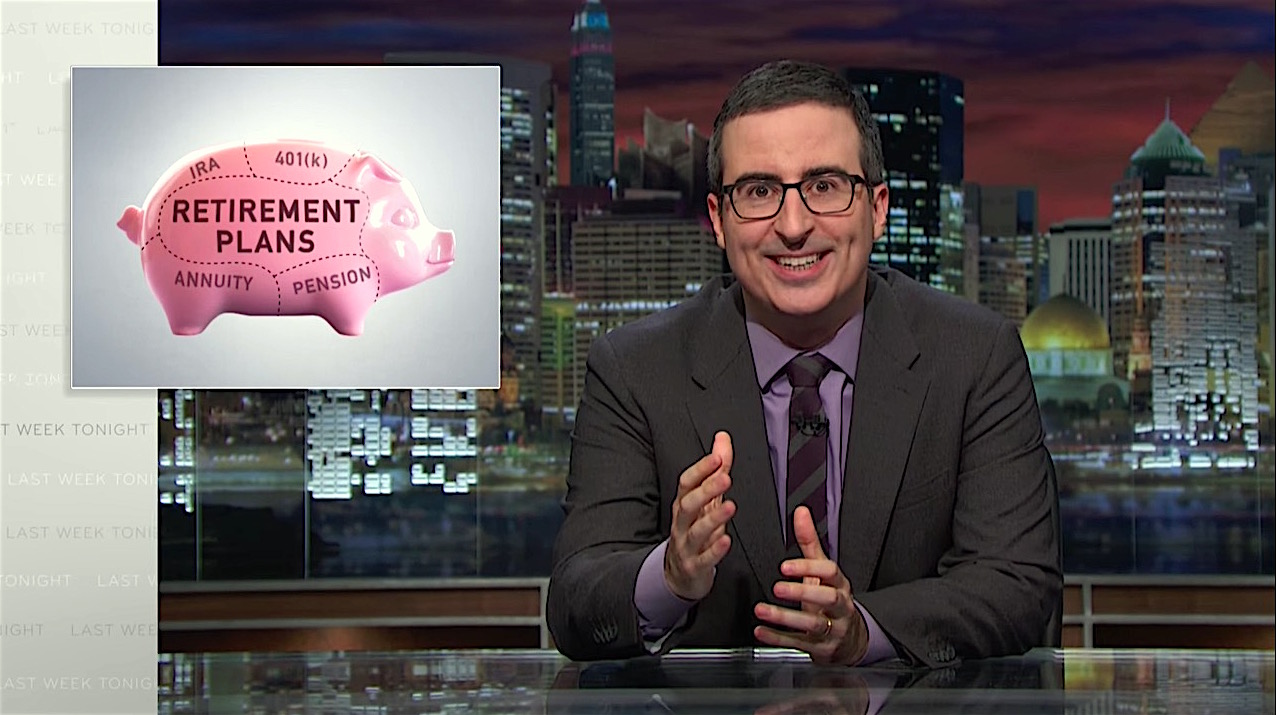John Oliver offers you some sound retirement advice. No, really.


A free daily email with the biggest news stories of the day – and the best features from TheWeek.com
You are now subscribed
Your newsletter sign-up was successful
"Money — you know, the thing that everyone likes to think they're good with, despite the evidence provided in every episode of The Suze Orman Show," said John Oliver on Sunday's Last Week Tonight. One of Orman's main themes is that people should be saving for retirement, and Oliver agreed. "It is true that as we all live longer, you should absolutely save for retirement, if you can," he said.
"And many do — we currently have around $24 trillion sitting in retirement assets," Oliver added. "And a lot of that money is in the hands of financial services companies, so let's talk a little about how they work — which I know sounds boring, but as a favor to your future self, it is worth watching this for 20 minutes, because you could easily make small mistakes which could seriously cost you down the line." For the next 15 of those minutes, Oliver walked viewers through the slippery label "financial adviser," explained why "fiduciary" is a key term, and talked extensively about the 401(k), which "can be a gold mine for financial service companies," thanks to the compounded effect of fees: "Think of fees like termites — they're tiny, they're barely noticeable, and they can eat away for f---ing future."
"Between financial advisers, high fees, and underperforming active management, the entire financial planning industry is a potential minefield, and you need to pay attention," Oliver said. "But here is the good news: It doesn't actually have to be that complicated, and it might be getting simpler," thanks to a recent Labor Department rule. He ended on a hopeful note: "For your average person trying to save for retirement, it doesn't need to be this confusing. The truth is, as long as you remember a few key things, you're probably going to be fine." And for the last few minutes, he had Billy Eichner and Kristin Chenoweth lay them out for you, in a way that won't put you to sleep. Watch below. Peter Weber
The Week
Escape your echo chamber. Get the facts behind the news, plus analysis from multiple perspectives.

Sign up for The Week's Free Newsletters
From our morning news briefing to a weekly Good News Newsletter, get the best of The Week delivered directly to your inbox.
From our morning news briefing to a weekly Good News Newsletter, get the best of The Week delivered directly to your inbox.

A free daily email with the biggest news stories of the day – and the best features from TheWeek.com
Peter has worked as a news and culture writer and editor at The Week since the site's launch in 2008. He covers politics, world affairs, religion and cultural currents. His journalism career began as a copy editor at a financial newswire and has included editorial positions at The New York Times Magazine, Facts on File, and Oregon State University.
